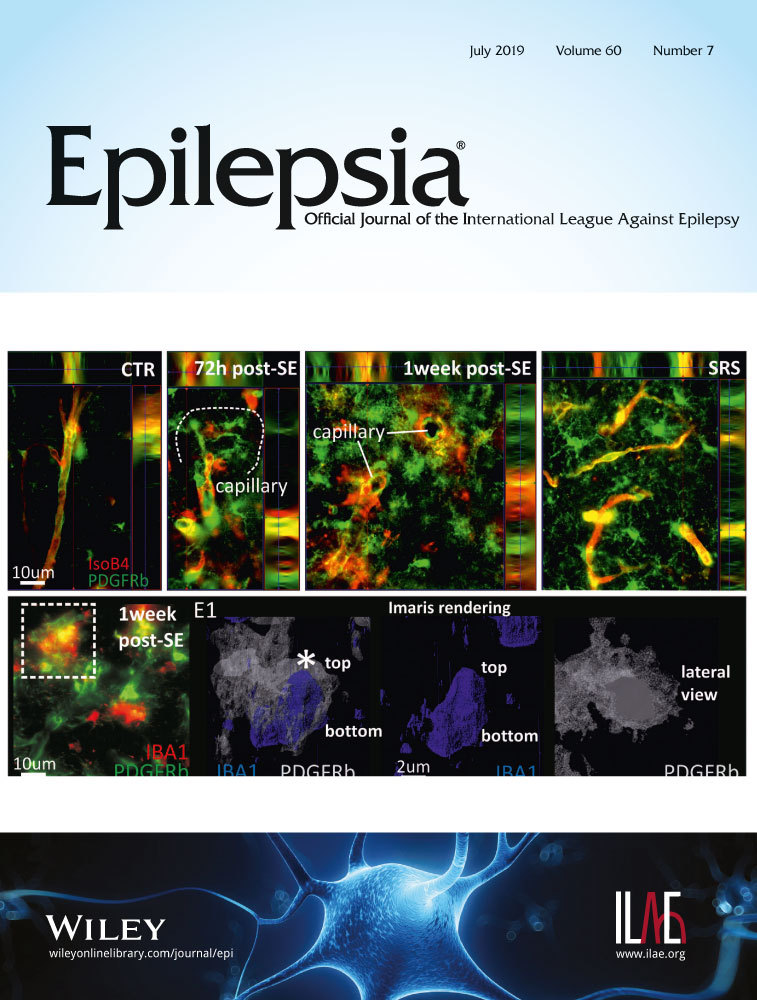Effects of cannabidiol on brivaracetam plasma levels
Abstract
The use of cannabidiol (CBD) for treatment of pharmacoresistant epilepsies is increasing. CBD is metabolized via UDP-glucuronosyltransferase (UGT) and cytochrome 450 (CYP) enzymes, but information on interactions with common anticonvulsive drugs is incomplete. We report a case series of five patients receiving adjunctive treatment with CBD who showed increases in brivaracetam (BRV) levels by 95% to 280%. Only two patients reported mild adverse events, leading to a reduction of BRV in one patient. One possible mechanism contributing at least partially to increasing BRV level is the inhibition of CYP2C19 by cannabidiol. Further pharmacokinetic studies are required to understand other possible mechanisms of brivaracetam-cannabidiol interaction.
CONFLICT OF INTERESTS
Andreas Schulze-Bonhage has received honoraria for lectures and advice from BIAL, EISAI, Precisis, and UCB. None of the other authors has any conflict of interest to disclose. We confirm that we have read the Journal's position on issues involved in ethical publication and affirm that this report is consistent with those guidelines.




